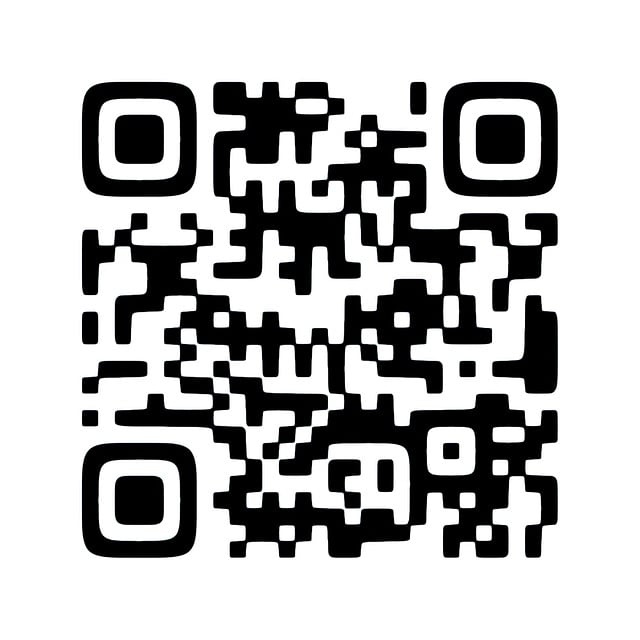Ensuring that a company's UK Code of Conduct and Ethics is accurately understood by all international employees and stakeholders is essential for maintaining corporate integrity. Specialized translation services play a pivotal role in this process by providing precise and culturally sensitive translations of ethical guidelines, ensuring that the core values and expectations are faithfully conveyed across different languages and cultures. These services employ expert linguists who are not only proficient in the source and target languages but also possess a deep understanding of local business practices and ethical norms to avoid misunderstandings. This approach is crucial for companies with multinational operations, as it helps to prevent misinterpretations, supports compliance with international standards, and fosters a global culture of transparency and accountability. By leveraging UK Code of Conduct and Ethics translation services, organizations demonstrate their commitment to ethical practices worldwide, thereby enhancing trust and upholding ethical integrity across all aspects of their operations.
Navigating the complexities of global business necessitates clear, consistent communication, a cornerstone of which is the translation of corporate codes of ethics. This article delves into the critical role that accurate translations play in upholding ethical standards across diverse cultures, with a particular focus on the UK Code of Conduct and Ethics. By examining the challenges and strategies involved in this process, we aim to shed light on best practices for expanding a company’s ethical framework worldwide. Through a comprehensive exploration of cross-cultural communication, translation services, and ethical principles, we will demonstrate how translating corporate codes can enhance global corporate integrity, ensuring that every stakeholder, regardless of language or location, understands the ethical values upheld by the organization.
- The Importance of Cross-Cultural Communication in Corporate Ethics
- Overview of the UK Code of Conduct and Ethics
- The Role of Translation Services in Effective Ethical Communication
- Identifying Key Ethical Principles for Translation
- Challenges in Translating Ethical Guides Across Cultures
- Strategies for Accurate Translation of Ethical Documents
- Case Study: Successful UK Code of Conduct and Ethics Translation Services
- Best Practices for Ethical Translation to Expand Global Reach
- Enhancing Corporate Integrity with Multilingual Ethical Codes
The Importance of Cross-Cultural Communication in Corporate Ethics

In today’s global business environment, cross-cultural communication plays a pivotal role in upholding corporate ethics. As companies expand their operations across borders, understanding and adapting to different cultural norms becomes imperative. This is where the UK Code of Conduct and Ethics translation services are invaluable. These services ensure that ethical guidelines are not only accurately translated into the local languages but also contextually adapted to align with cultural nuances. This facilitates a shared understanding of corporate ethics among diverse teams, thereby fostering integrity and trust across international platforms. It is through such meticulous translation efforts that companies can maintain a consistent ethical stance worldwide, bridging cultural divides and promoting a cohesive approach to corporate governance and ethics.
The benefits of translating the UK Code of Conduct and Ethics are manifold. By making these codes accessible in multiple languages, businesses can enhance compliance and ensure that all employees, regardless of their linguistic background, receive the same ethical training. This not only supports ethical decision-making but also helps in preventing misunderstandings or conflicts that may arise from cultural differences. High-quality translation services are instrumental in this regard, providing clear and precise translations that convey the original intent without loss or misinterpretation. In essence, these services are crucial for any multinational corporation looking to implement a robust ethical framework that resonates with all stakeholders.
Overview of the UK Code of Conduct and Ethics

Organisations across the United Kingdom are increasingly recognising the importance of clear communication, particularly in the context of their corporate codes of conduct and ethics. The UK Code of Conduct and Ethics serves as a foundational guide for employees, setting forth the principles and standards expected within the company. It encompasses aspects such as honesty, integrity, accountability, and respect, ensuring that all business activities are conducted in a manner that upholds the company’s reputation and aligns with legal and ethical obligations. For multinational companies or those expanding internationally, translating this code into languages spoken by employees or stakeholders is crucial for inclusivity and effectiveness. UK Code of Conduct and Ethics translation services play a pivotal role in this process, facilitating understanding across different linguistic barriers and ensuring that the ethical standards are not just understood but also followed by all parties involved. This translation extends beyond mere word-for-word equivalence; it involves cultural adaptation to ensure that the nuances and context of the original message are preserved. By leveraging professional UK Code of Conduct and Ethics translation services, companies can foster a harmonious work environment and maintain a high ethical standard, which is indispensable in today’s global marketplace. This commitment to clear communication and cultural sensitivity not only promotes trust within the organisation but also enhances its standing among clients, suppliers, and the broader community.
The Role of Translation Services in Effective Ethical Communication

In today’s global business environment, effective ethical communication is paramount for maintaining integrity and trust across diverse teams and international markets. The UK Code of Conduct and Ethics serves as a foundational guide for businesses to foster an ethical culture within their operations. However, the effectiveness of this code extends only to those who can comprehend it in their native language. This is where specialized translation services play a crucial role. By offering precise translations of the UK Code of Conduct and Ethics, these services ensure that all employees, regardless of linguistic background, have access to the ethical standards and guidelines that govern their workplace behavior. This equitable understanding facilitates a consistent application of ethical principles across different regions and departments, promoting a unified approach to corporate responsibility.
Choosing reliable UK Code of Conduct and Ethics translation services is not merely about conveying words from one language to another; it’s about preserving the intent and nuance of ethical communication. High-caliber translators who are adept at capturing the subtleties of ethical discourse are indispensable in this process. They bridge cultural and linguistic barriers, enabling companies to uphold their ethical standards globally. This alignment not only enhances internal communication but also reinforces a company’s commitment to ethical practices with its international partners and clients, thereby safeguarding its reputation and fostering sustainable business relationships.
Identifying Key Ethical Principles for Translation

In an increasingly globalized business environment, the importance of clear and consistent communication across different cultures cannot be overstated. For UK-based organizations looking to expand their reach, translating the UK Code of Conduct and Ethics into multiple languages is a critical step. This process involves not only the literal translation of text but also the careful adaptation of ethical principles to resonate with diverse audiences while maintaining the original intent and meaning. Identifying key ethical principles that are universal in nature yet sensitive to local nuances is pivotal for effective communication. Translation services specializing in corporate codes must be adept at pinpointing these fundamental values, such as integrity, respect, accountability, and social responsibility, ensuring they are accurately conveyed across different languages and cultural contexts. This not only fosters trust among international stakeholders but also reinforces the organization’s commitment to ethical practices on a global scale.
The translation of corporate codes of ethics requires a deep understanding of both the source and target languages, as well as the cultural subtleties that influence perceptions of ethics. UK Code of Conduct and Ethics translation services must go beyond mere word-for-word translations to provide culturally relevant and contextually accurate documents. This is achieved through a meticulous process that includes not only linguistic expertise but also insights into the cultural norms and business etiquette of the target audience. By ensuring that ethical principles are accurately translated, organizations can effectively communicate their standards and expectations to employees, partners, and customers worldwide, thereby promoting a culture of integrity and accountability that transcends borders.
Challenges in Translating Ethical Guides Across Cultures

Companies operating internationally often encounter significant challenges when translating their corporate codes of ethics for diverse cultural contexts. The UK Code of Conduct and Ethics, for instance, may contain nuances and idiomatic expressions that do not have direct equivalents in other languages or cultures. Translation services specializing in this field must navigate the subtleties of ethical language to ensure that the core values and principles are accurately conveyed without losing their original meaning. This process involves a deep understanding of both the source and target languages, as well as cultural contexts. Literal translations can lead to misunderstandings or misinterpretations that could have legal or reputational implications. Therefore, it is crucial for translation services to employ expert linguists who are not only proficient in language but also trained in cross-cultural communication to translate the UK Code of Conduct and Ethics effectively. They must consider local norms, business practices, and ethical standards to produce a translated code that resonates with employees while remaining true to the original document’s intent. This meticulous approach is essential for maintaining global corporate integrity and fostering trust among stakeholders in multicultural environments.
Strategies for Accurate Translation of Ethical Documents

Organizations expanding their reach into international markets must ensure that their corporate codes of ethics are accurately conveyed to all stakeholders. This is where specialized UK Code of Conduct and Ethics translation services play a pivotal role. To achieve precision in translation, it is imperative to employ linguistic experts with a deep understanding of both the source and target languages, as well as the cultural nuances that can influence the interpretation of ethical principles. These professionals are adept at navigating the complexities of language and ethics, ensuring that the core values and expectations articulated in the original document are preserved intact across translations.
Effective translation services for UK corporate codes of conduct and ethics involve a multi-step process. Initial steps include meticulous source text analysis and selection of translators with relevant expertise. Subsequent phases involve review by subject matter experts, followed by cultural adaptation to guarantee that the translated document aligns with local norms while maintaining fidelity to the original content. This approach not only facilitates clear communication across diverse linguistic and cultural barriers but also reinforces an organization’s commitment to ethical standards on a global scale.
Case Study: Successful UK Code of Conduct and Ethics Translation Services

In an increasingly globalized business environment, the importance of clear and culturally sensitive communication cannot be overstated. A pivotal example of this is the successful translation of the UK Code of Conduct and Ethics by leading translation services. This initiative has proven to be a significant step in fostering transparency and trust among diverse stakeholders. By translating this code into multiple languages, companies have been able to ensure that their ethical standards are understood and adhered to across different regions and cultures. This not only helps in maintaining consistency in business practices but also demonstrates a commitment to ethical conduct on an international scale. The translation services employed by these UK firms are meticulous, capturing the nuances of both the original text and the target language’s cultural context, thereby avoiding misunderstandings that could arise from literal or culturally insensitive translations. As a result, employees, clients, and partners worldwide can engage with the company’s ethical framework in their native tongue, which is crucial for operational integrity and legal compliance across various jurisdictions. The UK Code of Conduct and Ethics translation services have thus become an indispensable tool for companies seeking to uphold their values universally, ensuring that ethical practices are not confined by language barriers. This has led to a more harmonious global operation, where ethical standards are a shared language, transcending linguistic and cultural divides.
Best Practices for Ethical Translation to Expand Global Reach

In the realm of global business, effective communication is pivotal for fostering trust and ensuring compliance with ethical standards across different regions. To this end, translating corporate codes of ethics, such as the UK Code of Conduct and Ethics, into multiple languages is a strategic move that can significantly enhance an organization’s ability to communicate its values and expectations to a diverse workforce. Best practices for ethical translation involve a meticulous approach that goes beyond mere linguistic transfer. It necessitates a deep understanding of cultural nuances and the ethical context within which the code operates. Translation services specializing in such endeavors employ expert translators who are not only fluent in language but also knowledgeable about local business practices and ethical norms. This ensures that the translated code resonates with employees from various cultural backgrounds, thereby upholding its integrity and intent.
Furthermore, to maintain the highest standards of accuracy and relevance, these translation services often incorporate a multi-step process. This typically includes having subject matter experts review the translations to ensure that technical terms and ethical concepts are accurately conveyed. Engaging with reputable UK Code of Conduct and Ethics translation services can be instrumental in navigating the complexities of global communication and in safeguarding an organization’s ethical stance across its international operations. By adhering to these best practices, businesses can bridge cultural divides and promote a shared understanding of ethical conduct among all stakeholders, thereby expanding their global reach with confidence.
Enhancing Corporate Integrity with Multilingual Ethical Codes

In today’s global business environment, corporate integrity is paramount. One of the foundational elements of this integrity is adherence to ethical principles as outlined in a company’s code of conduct and ethics. For multinational corporations with a diverse workforce that spans various countries, such as the UK, translating these codes into multiple languages becomes not just a courtesy but an integral part of effective governance. By providing translated versions of the UK Code of Conduct and Ethics, companies can ensure that all employees, regardless of their linguistic background, fully understand the ethical standards they are expected to uphold. This inclusivity fosters a transparent and accountable work culture, which is critical for maintaining trust both internally and with external stakeholders. Translation services specialising in corporate codes offer precision and cultural nuance, ensuring that the message conveyed is not just linguistically accurate but also contextually meaningful within the cultural framework of each language. This meticulous approach to translation serves as a catalyst for integrity, aligning the company’s values with the expectations and understandings of its global team, thereby enhancing corporate integrity on a multilingual scale.
The strategic deployment of UK Code of Conduct and Ethics translation services extends beyond mere compliance; it is a proactive step towards fostering a robust ethical framework that can mitigate risks associated with misunderstandings or misinterpretations of ethical guidelines. In an increasingly interconnected world, the ability to communicate ethical expectations clearly and effectively is crucial for maintaining a reputation of integrity and reliability. By making these translated codes accessible to all employees, companies not only demonstrate their commitment to ethical practices but also empower their workforce to make decisions that align with the organisation’s values. This transparency is key to building trust and ensuring that ethical standards are upheld across all operations, thereby safeguarding the company’s reputation and fostering a culture of integrity and respect.
In conclusion, the meticulous translation of corporate codes of ethics, as exemplified by the UK Code of Conduct and Ethics, is a pivotal step for global companies seeking to foster trust and consistency across diverse cultural landscapes. By leveraging specialized translation services, organizations can navigate the complexities inherent in cross-cultural communication, ensuring that ethical standards are both understood and upheld universally. The strategies outlined in this article—from identifying key principles to overcoming challenges in translation—provide a roadmap for companies committed to maintaining their integrity while expanding their global reach. Embracing these best practices not only demonstrates a company’s dedication to ethical conduct but also its respect for the cultural nuances that shape each linguistic community. As such, the translation of the UK Code of Conduct and Ethics stands as a testament to the potential for clear, effective, and responsible communication in the corporate sector.



